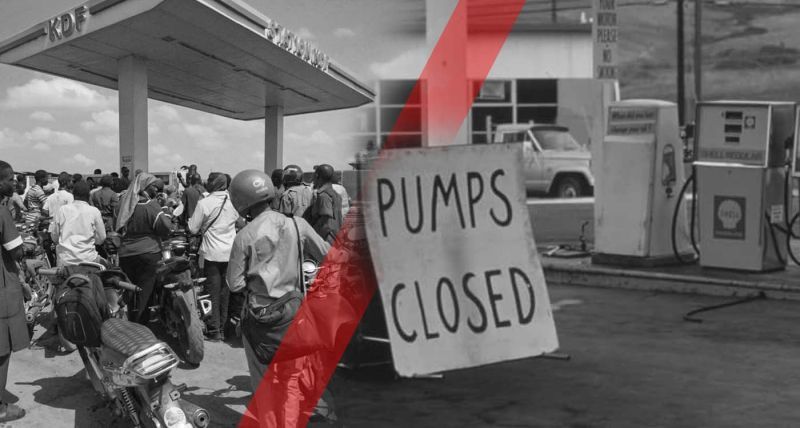
Mali is facing an unprecedented fuel crisis. Attacks on fuel convoys, empty gas stations, soaring inflation and idling factories are hitting the country hard, exposing the vulnerabilities of an economy heavily dependent on energy imports amid a volatile security situation.
Since early September, queues at gas stations in Bamako have been endlessly growing. The jihadist group JNIM (Jamaʿat Nuṣrat al-Islam wal-Muslimin) has blocked fuel convoys from Senegal and Côte d’Ivoire, destroying nearly 100 tanker trucks, according to the Associated Press (AP).
As a landlocked country, Mali relies on imports for more than 90% of its petroleum products, reports the World Bank. The disruption has brought supplies to an almost complete halt, compared with the 100 to 120 tankers that used to enter the country daily before the crisis.
Transport Paralyzed, Schools Closed
The effects are immediate. In Bamako, the price of a liter of gasoline has tripled, climbing from 900 to 2,700 CFA francs ($1.47 to $4.41) on the black market, according to Reuters. Public transportation is running at a crawl, with motorcycle taxis doubling their fares, forcing many residents to walk or stay home.
The government has temporarily closed several schools and universities due to fuel shortages affecting travel and electricity generation. Some residents are traveling more than 20 kilometers in search of a station that still has fuel, according to AP.
Industries and Services at a Standstill
The economic impact is severe. Power outages are increasing, as 40% of Mali’s energy production relies on fuel-powered thermal plants. Factories in Bamako’s industrial zone are running at less than half capacity, according to the Chamber of Commerce and Industry of Mali (CCIM, October 2025).
Rising production costs are also pushing consumer prices higher. Annual inflation reached 11.3% in September, up from 8.6% in June, according to the IMF’s 2025 Sub-Saharan Africa report.
A Lasting Social Shock
Households, already strained by the soaring cost of living, are bearing the full brunt of this crisis. According to the National Institute of Statistics, nearly 60% of Malians live below the poverty line, and the average food basket has increased by 18% since August. Domestic trade is collapsing: goods are no longer moving, and regional markets lie deserted.
The government is negotiating an emergency supply of 50,000 tons of fuel with Russia, reports Reuters, but logistical delays are expected.
In the short term, the crisis could worsen if key trade routes remain blocked. Over the medium term, Mali must rethink its heavy reliance on imported energy. World Bank experts advocate diversifying toward solar power, which still accounts for only 6% of the country’s energy mix. Yet without political stability and secure transportation corridors, any sustainable solution remains uncertain.
The fuel crisis goes beyond a simple shortage: it highlights the vulnerability of a country dependent on imports and weakened by insecurity. As long as roads remain closed and fear persists, Mali’s economic engines will continue to stall.




Comments